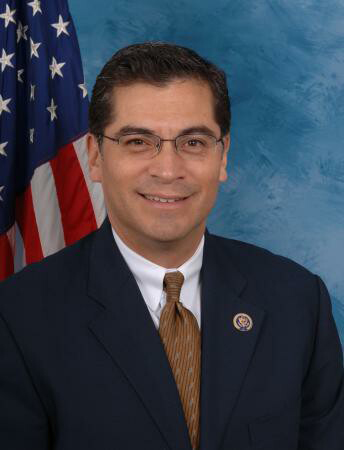February 15, 2020 - SACRAMENTO – California Attorney General Xavier Becerra, leading a 10-state coalition, on Wednesday filed comments on the U.S.  Environmental Protection Agency’s (EPA) proposed amendments to nationwide standards for controlling and remediating lead in drinking water, also known as the Lead and Copper Rule. The EPA’s proposed revisions represent the first major amendments in a generation to the Lead and Copper Rule, which was first promulgated in 1991. Although some of the proposed revisions strengthen the 1991 rule, others weaken existing requirements and fail to adequately protect the public from lead in drinking water.
Environmental Protection Agency’s (EPA) proposed amendments to nationwide standards for controlling and remediating lead in drinking water, also known as the Lead and Copper Rule. The EPA’s proposed revisions represent the first major amendments in a generation to the Lead and Copper Rule, which was first promulgated in 1991. Although some of the proposed revisions strengthen the 1991 rule, others weaken existing requirements and fail to adequately protect the public from lead in drinking water.
“The Environmental Protection Agency should make every sensible attempt to tackle the dangers of lead in drinking water. Trying some isn’t enough. That’s why this EPA proposal fails the test Americans expect,” said Attorney General Becerra. “There is no room for backsliding on the standards protecting our families from the well-documented dangers of lead. We don’t have decades to wait before we fix this problem – we owe it to our children now to employ stringent standards when it comes to keeping lead out of our drinking water.”
Lead is a highly toxic heavy metal that can adversely affect almost every organ and bodily system. It is particularly dangerous for children since their developing brains and nervous systems are more sensitive to its damaging effects. Lead exposure can cause a range of health problems, including premature birth, learning disabilities, delayed physical development for children, and cardiovascular and kidney problems for adults. The EPA itself notes that “lead is a toxic metal that can be harmful to human health even at low exposure levels.” Most lead enters drinking water from corroded pipes, faucets, and fixtures that contain lead or brass, and is exacerbated if water has high acidity or low mineral content. Lead is most commonly introduced to drinking water through the lead service lines that connect homes to public water mains, not through the water source itself.
The existing Lead and Copper Rule requires water systems to work with customers to collect samples from a small number of drinking water outlets associated with lead service lines or plumbing materials. If 10 percent of all water samples taken exceed the 15 parts per billion (ppb) action level, water systems must take corrective action to reduce lead in drinking water.
While EPA’s proposed revisions strengthen the Lead and Copper Rule in a number of ways, the coalition asserts in its comment letter that the proposal falls short in several other areas necessary to make the rule an effective tool for protecting communities from lead in drinking water. The coalition also argues that some of the proposal may violate the Safe Drinking Water Act (SDWA). As identified in the comment letter, EPA’s proposed treatment requirements may fail to “prevent known or anticipated adverse effects on the health of persons to the extent feasible” as required by the SDWA. The rule’s proposed reduction in the lead service line replacement rate — from seven percent to three percent — may also violate the SDWA anti-backsliding provision that prohibits the EPA from weakening existing drinking water standards. Decreasing the current replacement rate would give water districts up to 33 years to replace lead service lines that test above actionable levels.
Attorney General Becerra is committed to protecting California communities from the dangers of toxic metals. Attorney General Becerra sponsored a bill, signed into law by Governor Newsom in September, that protects consumers by updating California’s metal-containing jewelry laws to better reflect current science and international standards on the toxicity of lead and cadmium in jewelry. That same month, he announced a settlement against Grass Advantage, a nutrition company specializing in organic food supplements, greens, and protein powders, for allegedly selling and distributing thirteen products containing excessive levels of lead or cadmium in violation of California’s Proposition 65 law. Attorney General Becerra also announced settlements resolving allegations against five jewelry distributors in May for selling jewelry containing excessive levels of lead and, in one instance, cadmium. In 2018, he issued cease and desist letters and filed a lawsuit against two business that make and sell toddler formula due to the discovery of dangerously elevated levels of lead in their toddler formulas.
Attorney General Becerra leads the coalition which includes the attorneys general of California, Connecticut, Illinois, Maryland, Minnesota, New Jersey, New York, Oregon, Pennsylvania, and Wisconsin.
A copy of the brief can be found here.
Source: CA. DOJ








